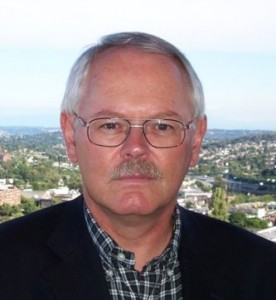The Belgian theologian Jan Walgrave, who directed my doctoral thesis, was a true intellectual and a rare one. True, in that his thought naturally, instinctually gravitated towards the huge philosophical questions of essence and existence. Why are we here? Who are we really? Moreover, he was also a rare intellectual in that he was an uncommon mixture of hard intellectual scrutiny and childlike piety. He could be equally disarming both in his intellectual sophistication and in his childlikeness.
In one of our meetings, he asked me this, “Do you ever sit on a park bench and ask yourself, ‘Why is there something instead of nothing?’” I answered honestly, “In truth, I can’t ever remember doing that very explicitly. Like everyone else, I often wonder where we came from and how there is a God behind all of this, but I have never very explicitly contemplated your question.” “Well,” he replied, “then you are not a philosopher! He went on, “I think about this question all the time; it is the most important of all questions.” (He consoled me for the fact that I could never be a true philosopher by telling me I had a “fertile mind,” which he told me is its own gift.)
Why is there something instead of nothing? Surely, that is the ultimate question. How did it all begin? Who or what was there at the beginning and started it all? Moreover, where did this who or what come from, who gave it a beginning?
Contemporary science cannot answer that question. It can tell us what happened at the origins of our universe, the Big Bang, but that doesn’t get us any nearer answering the bigger question, namely, who or what gave origin to that initial explosion nearly 15 million years ago that lies at the origins of our universe and gave birth to billions of galaxies? How was this force itself in existence?
As people of faith, we believe it was God and believe that God had no beginning. However, that can neither be conceptualized nor imagined. What gave birth to God? No matter whether we believe in God or not, we are all still left with the question, Walgrave’s question, “why is there something instead of nothing?” Moreover, that question is complicated further by the fact that creation, at least vast segments of it, have a clear intelligent design. Given that fact, the most credible postulate vis-à-vis who or what lies at the origins of everything, demands that this something or someone (from which everything takes its origins) is not some blind, brute force but one that is highly intelligent and personal.
Thomas Aquinas, who did have a true philosophical mind, once proposed a number of logical arguments to try to “prove” that God exists. Among his arguments, we find this one: Imagine walking down a road and finding stone on the ground and asking yourself, ‘Who put that stone there?’ You could simply conclude that it has always been there and think no further about it. However, imagine walking down a road and finding a clock that is still keeping time, and asking yourself, ‘Who put that clock there?’ In this case, you could not simply say it has always been there and leave it at that. Why? Because the clock has a clear intelligent design that demands that some intelligence designed it. As well, it is still keeping time, which means that it could not always have been there. Someone put it there, and at some clear point in time. Thus, Aquinas concluded that since many things in the universe have an intelligent design, there must be an intelligent designer at its origins.
Today most people might consider that logic a bit naïve, but perhaps the naiveté is on their part. Someone no less than Albert Einstein affirmed this: The harmony of natural law reveals an intelligence of such superiority that, compared with it, all the systematic thinking and acting of human beings is utterly insignificant reflection.
He is right, and the harmony he speaks of is not just the unfathomable ecological harmony that the various elements of the physical world appear to have with each other and how nature continues to regenerate itself despite everything we do to destroy its ecology. Further still, that harmony of natural law (as Einstein calls it) also includes an undeniable oneness between the laws of nature and the moral order. The law of karma and the law of nature are one and same thing, all of one piece, as is the law of gravity and the Holy Spirit. The physical and the moral are part of a single symphony. The air we breathe out into the universe is the air we are going to inhale – physically and morally.
Rarely do I sit on a park bench and ask myself, “Why is there something instead of nothing?” But then as Jan Walgrave said, I’m not a philosopher. My hope is that this little excursion into philosophy isn’t proof of that.
Oblate Fr. Ron Rolheiser is a theologian, teacher, and award-winning author. He can be contacted at www.ronrolheiser.com.

Oblate Fr. Ron Rolheiser
